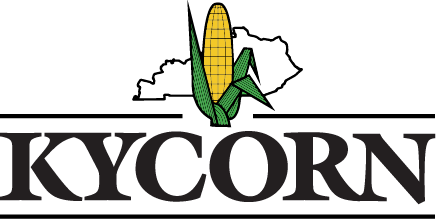Authored by Haley Bickelhaupt, IL Corn
The Department of Energy’s (DOE) Argonne National Laboratory’s GREET model is catching the eyes of not only airlines and policy gurus, but also midwestern corn farmers. The model is critical to corn-based ethanol’s pathway to the sustainable aviation fuel (SAF) market.
What is GREET?
The GREET (Greenhouse Gases, Regulated Emissions, and Energy Use in Technologies) model was created in 1995 as a tool to evaluate the lifecycle analysis of technologies or products. In the simplest terms, the model was created to calculate environmental impact. GREET is important in calculating the carbon scores of the transportation industry.
The DOE states GREET can calculate:
- Total energy consumption (non-renewable and renewable)
- Fossil fuel energy use (petroleum, natural gas, coal)
- Greenhouse gas emissions
- Air pollutant emissions
- Water consumption
In agriculture, GREET is critical to Renewable Fuel Standard, low carbon fuel standards, and SAF production.
Why don’t some people like GREET?
GREET accurately depicts agriculture’s carbon emissions. However, other models penalize agriculture claiming the industry has a large environmental footprint. Some international and state-specific models were created for areas with less production farmland and punish agriculture for land use change emissions. Argonne National Laboratory updates the GREET model annually with the newest documented data. ICAO’s model (explained below) uses outdated information and penalizes corn for indirect land use that is not scientifically supported.
What is ICAO?
The International Civil Aviation Organization (ICAO) is a United Nations agency which helps 193 countries to cooperate together. In October 2016, the nations of the ICAO established the Carbon Offsetting and Reduction Scheme for International Aviation (CORSIA). CORSIA uses market-based environmental policy instruments to reduce CO2 emissions by requiring operators to purchase carbon offsets to cover their emissions above 2020 levels.
Why is GREET important now?
In 2022, the Inflation Reduction Act (IRA) included tax credits for SAF. The fuel could increase demand for corn if the SAF is produced from ethanol. The IRA’s 45Z tax credit requires feedstocks to meet a 50% reduction in greenhouse gas emissions. Without the ability of the GREET model to accurately calculate ethanol’s GHG emissions, agriculture would be excluded from the credit and SAF production.
Why should farmers care?
SAF could open unprecedented demand for corn. In 2005, the Renewable Fuel Standard created a growth in ethanol demand and increased the need for corn. In 2021, the Biden Administration announced the goal of increasing SAF production to three billion gallons by 2030. The sustainable aviation fuel (SAF) industry is still in its infancy, but experts estimate SAF could generate $2,926MM economic impact in the state.
Without expanding markets like SAF production, experts say corn farmers are projected to lose demand. The Environmental Protection Agency’s Multipollutant Emissions Standards would require by 2032, 56% of light-duty vehicles sold be plug-in-electric and 13% hybrid electric vehicles. National Corn Growers Association Lead Economist Krista Swanson said the rule will create an annual loss of more than one billion bushels of corn by 2041.
It is critical the GREET model remains the standard modeling system analyzing ethanol’s lifecycle emissions. The U.S. Department of Treasury must support GREET while maintaining its accuracy and transparency for measuring the carbon intensity of corn as a feedstock for SAF.

